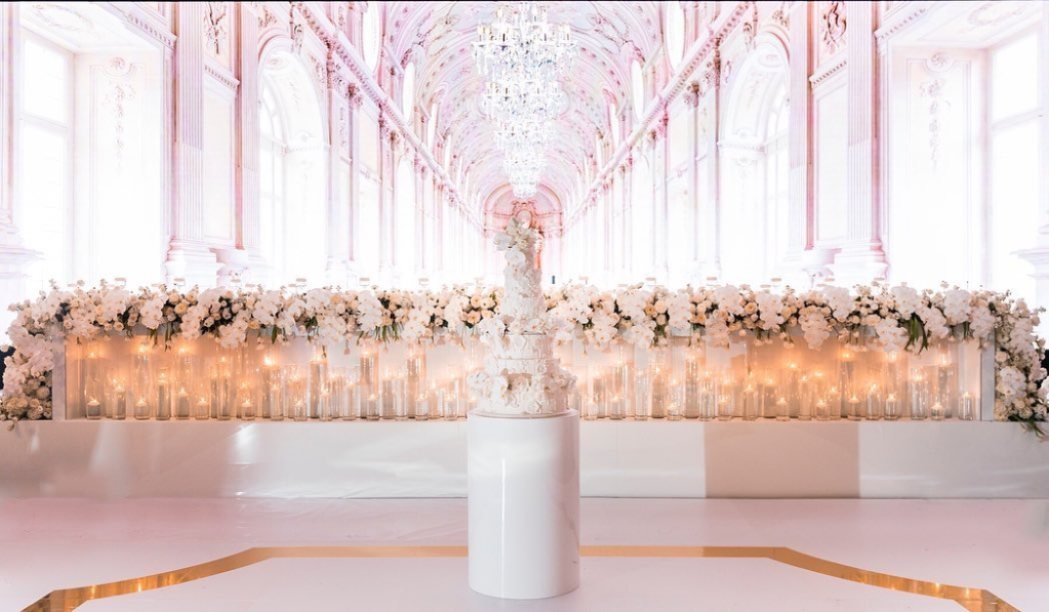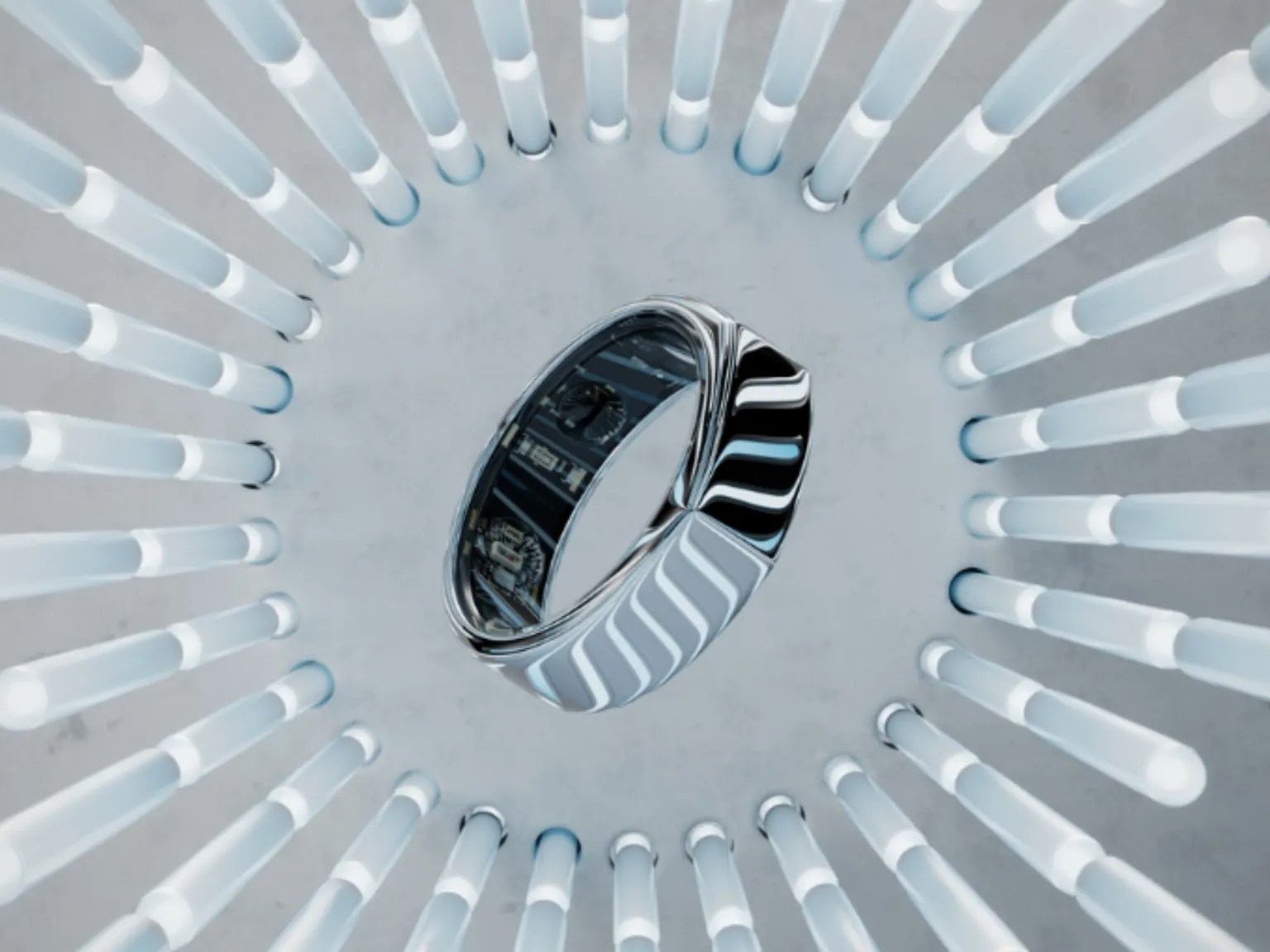Embracing the Future of Weddings
with New Tech Trends
New Tech Trends That Embrace
the Future of Weddings
By Maggie Yates | February 15, 2024

Read all of the stories in our 2024 Wedding Guide here.
Planning a wedding, especially one designed with extravagance in mind, can be daunting. However, the wedding industry, like many other sectors, is turning to tech to meet the evolving demands of clients. There is currently a healthy availability of programming, gear, and gadgets that can streamline every step of your wedding journey from engagement to honeymoon.

AI assistance is making a big splash in society, and using it to help plan aspects of your wedding certainly can’t hurt. There are a variety of AI wedding planners online, which work to varying degrees of success in terms of personalization. (In my research, AI was not able to successfully plan a goth wedding for the fall of 2026 that included a local punk band, vegan food, and desert-based florals, but you might have better luck seeking more conventional options.) They can, however, recommend venues, florists, jewelers, caterers, and other vendors within your budget. (Vacation-planning AI technology can also help you design a honeymoon trip!) Or are you giving a speech or a toast, or writing your own vows, and don’t know where to start? Try one of the many AI writers that can shape your words and ideas into an impressive oration from the heart.
For those who already have many of the specifics for their event nailed down, utilization of wedding-planning software or a personalized wedding website can manage your planning timeline, your budget, your guest list, and all associated vendors. These websites and apps, such as Zola or The Knot, not only serve as a portal for RSVPs and meal preferences, but they can also provide your guests with crucial information about the venues and local intel for out-of-towners. A wedding website is also a fun and personal way to share your love story. Include photos and memorable milestones so your guests can be up to date on your experience as a couple.
While AI can help plan your big day, virtual and augmented reality can enhance the wedding experience by putting the impossible right in your hands. Not only can you send e-vites that can offer guests a sneak preview of the venue or the wedding activities, but you can also use virtual reality technology to get married “wherever” you choose! Can’t get Grandma to the South Pacific? Virtual reality will place you on the beaches of Bora Bora without setting foot on a plane (though, ironically, the price tag of a virtual tropical beach may outweigh the cost of travel to the real thing!). If VR-based experiences are within your price range, consider opportunities for your guests, as well. Friends and family will love to see, for example, the Amsterdam café where she proposed or the maternity ward in Madagascar where the couple met while volunteering for the Peace Corps. You can also use LED screens throughout your venue to add high-tech personal touches to the space, from beautiful art and backdrops to important photos and videos to necessary information for guests (like directions to the bathroom or seating arrangements).

Photography is a tricky subject for weddings now that everyone has a camera in their pocket, but hiring a professional for formal photos has not gone out of style. The candid photos that happen throughout the wedding day, however, are also a precious commodity for the couple — these capture the “real” moments of the event: people enjoying the dance floor, laughing with old friends, and teenagers surreptitiously sharing a stolen beer behind the bathrooms. Set up a digital photo album that guests can access via QR code. Place the QR code throughout the venue so people can take a shot, scan the code, and immediately upload the video of your sorority sisters doing the macarena and the image of the single tear rolling down Grandpa’s face. The photographer can’t be everywhere, but that doesn’t mean you need to miss those captured memories!
Another strategy that is growing in popularity, especially among the digital natives, is hiring a wedding “content creator.” If you want to capture your wedding in the social media milieu, a content creator will orchestrate, compile, and curate media samples to feed to your various social media accounts, displaying the magic of the experience with reels, soundbites, music, and intimate detail shots.
Wearable technology has also found its way into the wedding scene. For those with an eye on their health stats, “smart” wedding bands are equipped with sensors to monitor your vital signs, chart your sleep quality, and keep track of your steps, among a plethora of other features. Another benefit — the ring can track your location, making it easy for your photographer or wedding planner to locate you throughout the venue when you’re needed for particular activities. Air tags accomplish the same location-based intelligence if the look of the smart ring doesn’t fit your style. But remember: While it’s convenient to be accessible in order to say goodbye to Great-Aunt Janice or jump in a picture with your prep school rugby teammates, you can also say goodbye to sneaking away for an unsanctioned smoke break in the parking lot.

Finally, who says Prince can’t headline your wedding reception? Holographic technology is gaining accessibility and may soon be available in a middle-class price range. With this technology, people can project avatars of important guests who can’t physically be at the event or be entertained by a (proxy of an) artist or celebrity of their choice.
As times change and technology evolves, new ways of personalizing your wedding and reception to represent your lives together will emerge. These newfangled options may not be for everyone, but possibilities beyond analog traditions can be exciting for technology enthusiasts, giving them a way to present themselves and the beginning of their new life as a wedded couple in a language they understand.




You must be logged in to post a comment.